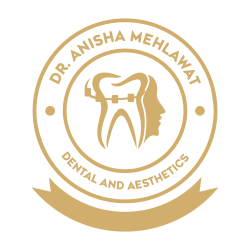Last updated on November 16th, 2023 at 02:58 pm
Introduction
Maintaining healthy teeth and gums is essential for overall well-being. A dazzling smile not only boosts your confidence but also indicates good oral hygiene. However, achieving and maintaining healthy teeth and gums requires a combination of proper oral care practices and regular visits to the dentist. In this blog, we’ll dive into effective strategies for keeping your teeth and gums in optimal condition.
Why Oral Care Matters
Having a solid oral care routine is crucial for preventing various dental issues such as cavities, gum disease, bad breath, and even more serious health concerns like heart disease and diabetes. Neglecting oral hygiene can lead to painful dental procedures and compromise your quality of life.
Plaque, which is a mixture of bacteria and food particles, forms on teeth shortly after eating. If not removed through proper oral hygiene practices, plaque can lead to tooth decay and gum disease. The irritation and inflammation caused by plaque can lead to infected and swollen gums. The bacteria in the plaque produce toxins that contribute to these problems. To prevent tooth decay and gum disease, it’s crucial to maintain good oral hygiene habits.
Starting these habits from a young age is important, and parents should teach their children how to properly brush and floss to ensure they develop healthy oral care routines. By taking care of your teeth and gums through consistent hygiene practices, you can significantly reduce the risk of dental issues like tooth decay and gum disease.
The Basics of Oral Hygiene
Brushing Technique
Use a soft-bristle toothbrush and fluoride toothpaste. Brush for at least two minutes, twice a day, using gentle circular motions. Don’t forget to brush your tongue to eliminate bacteria and keep your breath fresh.
Flossing Is Fundamental
Flossing reaches areas between your teeth where a toothbrush can’t. Aim to floss once a day to remove food particles and plaque buildup. Certainly, it is generally recommended to floss after brushing your teeth. Flossing helps to remove any leftover food particles, plaque, and bacteria from between your teeth and along the gumline that may not have been effectively reached by brushing alone.
This can contribute to better oral hygiene and help prevent issues like cavities, gum disease, and bad breath. So, the order of brushing and then flossing can be an effective routine for maintaining optimal dental health.
Choose Mouthwash Wisely
Opt for an antimicrobial or fluoride mouthwash to help reduce bacteria and strengthen your teeth. Swish it around your mouth for about 30 seconds after brushing and flossing.
The Right Diet
Limit sugary snacks and beverages, as they contribute to tooth decay. Incorporate calcium-rich foods like dairy products, leafy greens, and almonds for stronger teeth.
Regular Dental Visits
Importance of Checkups
Schedule regular visits to your dentist, ideally every six months. Professional cleanings and exams can catch issues early and prevent them from worsening.
Professional Cleanings
Dental cleanings remove tartar buildup, which brushing and flossing alone can’t eliminate. Cleanings also help polish your teeth for a brighter smile.
Protecting Your Gums
Recognizing Gum Disease
Be vigilant for signs of gum disease such as bleeding, redness, or swelling. If you notice these symptoms, consult your dentist promptly.
Proper Brushing for Gums
Brush your gums gently to stimulate blood flow and maintain gum health. Using a soft-bristle toothbrush can prevent irritation.
Don’t Skip Flossing
Regular flossing not only prevents cavities but also removes plaque along the gumline, reducing the risk of gum disease.
Special Considerations
Dental Products
Invest in a good toothbrush, fluoride toothpaste, and replace your toothbrush every three to four months or when bristles fray.
Mouthguards
If you play contact sports, use a mouthguard to prevent dental injuries.
Teeth Grinding
If you grind your teeth at night, consider using a nightguard to protect your teeth from damage.
Lifestyle and Oral Health
Quit Smoking
Smoking contributes to gum disease and stains teeth. Quitting can significantly improve your oral health.
Hydration Is Key
Drinking water helps flush away food particles and bacteria, maintaining oral hygiene.
Manage Stress
High stress levels can lead to teeth grinding. Practice stress-reduction techniques like yoga or meditation.
Conclusion
Caring for your teeth and gums is a commitment to your overall health and well-being. By following these simple steps by Dr. Anisha Mehlawat and maintaining a regular oral care routine, you can enjoy a radiant smile and prevent dental issues.
Remember, a healthy mouth is a gateway to a healthier life.


0 Comments